- OSMC 2021 | Introduction into OpenSearch
- OSMC 2021 | pg_stat_monitor: A cool extension for better database (PostgreSQL) monitoring
- OSMC 2021 | On the Bleeding Edge of OpenTelemetry
- OSMC 2021 | Thola – A tool for monitoring and provisioning network devices
- OSMC 2021 | Advanced MySQL optimization and troubleshooting using PMM 2
- OSMC 2021 | Observability will not fix your broken Monitoring , or Culture
- OSMC 2021 | Monitoring Open Infrastructure Logs – With Real Life Examples
- OSMC 2021 | Scaling Naemon deployments to Kubernetes with Merlin
- OSMC 2021 | Open Source API-HUB – Connect Icinga2, Zabbix, CheckMK and more with OpenCelium
- OSMC 2021 | Icinga for Windows – Evolution
- OSMC 2021 | inspectIT Ocelot: Dynamic OpenTelemetry Instrumentation at Runtime
- OSMC 2021 | Still directing the director… and more!
- OSMC 2021 | Current State of Icinga
- OSMC 2021 | Icinga-Installer – Der einfache Weg zum eigenen Icinga
- OSMC 2021 | Open Source Application Performance Monitoring in the Enterprise
- OSMC 2021 | Use OpenSource monitoring for an Enterprise Grade Platform
- OSMC 2021 | Contributing to Open Source with the example of Icinga
- OSMC 2021 | Handling 250K flows per second with OpenNMS: a case study
- OSMC 2021 | Robotmk: You don’t run IT – you deliver services!
- OSMC 2021 | Monitoring Open Source Hardware
- OSMC 2021 | Secure Password Vaults with Naemon
- OSMC 2021 | Gamification of Observability
- OSMC 2021 | Observability is More than Logs, Metrics & Traces
OSMC 2021 has been over for about a month now. It was a pretty interesting conference, and also my first one as a trainee at NETWAYS. The two-day conference including a workshop and hackathon was all about open source monitoring software like Icinga2, CheckMK or Prometheus.
Today I give you some insights about one of the talks:
About the Speaker
Philipp Krenn is a development advocate and EMEA team lead at the american-dutch company Elastic NV, best known for the Elastic Stack. Most of his time he is traveling Europe and beyond to speak and discuss open source software, search, databases, infrastructure and security. At the Open Source Monitoring Conference 2021 in Nuremberg he’s shown his passion to demo interesting technology, when he introduced the audience to OpenTelemetry.
What is OpenTelemetry?
OpenTelemetry (OTel) is an open source project, which is backed by the CNCF (Cloud Native Computing Foundation). The CNCF is a project founded in 2015 by the Linux Foundation to help advance container technology and to align the big tech companies around its evolution.
OpenTelemetry combines traces, metrics and logs. With this approach the plan is to unify instrumentation and down the road replace OpenTracing and OpenCensus.
One key factor of the new tool is its vendor neutrality. The compatibility and interoperability approach has wide support throughout the telemetry industry, including global players like Google, Elastic or Splunk.
Including the forementioned companies, a lot of vendors are helping to build OpenTelemetry, while almost everyone who works in the observability space is more or less standardizing in OpenTelemetry right now.
What problem can OpenTelemetry solve?
The question you might be asking right now is: why should I start using OpenTelemetry?
If it’s about logging/events, you can use the Elastic Stack. And you are right. But especially in a distributed environment with multiple instances of an application, load balancing and databases, to recognize and analyze issues you also need metrics and traces.
Metrics can help you to identify bottlenecks in your infrastructure and outputs them in measurable numbers, while traces give you a much-needed overview to understand what happens when an application is running as well as the possibility to retrace e.g. the way of a customer or a session through the entire system.
With all of these parameters combined in one software as well as the targeted goal as industry standard, there are going to be multiple advantages like time saved by not having to develop the right agent or a new layer of communication.
Three Ways to integrate an application in OpenTelemetry
To use OpenTelemetry in your projects, it is necessary to integrate your application into OTel. There are three different options available for you to do this, while the vendor can implement one or more of these.
Your possibilities are:
- You have your application in whatever language you want together with the OpenTelemetry agent. Within every agent of every language you have something called vendor exporter who can talk to the backend of the vendor you are using. This way is not the ideal one because everything after the OpenTelemetry agent, e.g. wire protocoll, is from the vendor. Because of this, you have to write the vendor exporter for every single programming language and even constantly maintain it.
- The second option is the OpenTelemetry collector. With this approach, the agent speaks the language of the OpenTelemetry protocol and sends his information to your centralized collector. A vendor exporter is located in the collector, from where your data is transferred to your vendor. A big benefit of this approach is that you only need one exporter for all applications, instead of one for every application.
- The last way is to push back the vendor and his protocol even more. For this approach, your agent speaks the OpenTelemetry protocol, while the vendor just takes the protocol and implements it in his workflow. This option can be described as vendor neutral because you only need to implement the OTel protocol and not like in e.g. possibility one must have an agent in every language for every one of your applications.
What you can see in the OpenTelemetry demo
After explaining a lot of background information to the possibilities of OpenTelemetry, Philipp Krenn used one third of his speaking time to show a demo of what the program can do.
He demonstrated the combination of a java agent and elastic exporter as collector. With this setup, all the information is transferred to the Elastic Stack, so the storage takes place in Elastic Search while it is displayed in Kibana.
As a speciality he explains the preloading that is possible with java. He also talks about how this procedure works for other languages and shows how to implement your own information apart from the ones available as standard.
If you want to learn more about the possibilities OpenTelemetry has to offer, check out their Homepage for further and more in-depth information.
Full talk and more from and about OSMC 2021
Watch the whole talk by Philipp Krenn here:
Since OSMC 2021 is unfortunately over we still have something for you: Did you already check out this year’s conference archives? They provide you slides and videos of each talk and also some photographs of the conference itself.
OSMC 2022 will take place from November 14 – 16 and we’re already looking forward to meeting you all again!
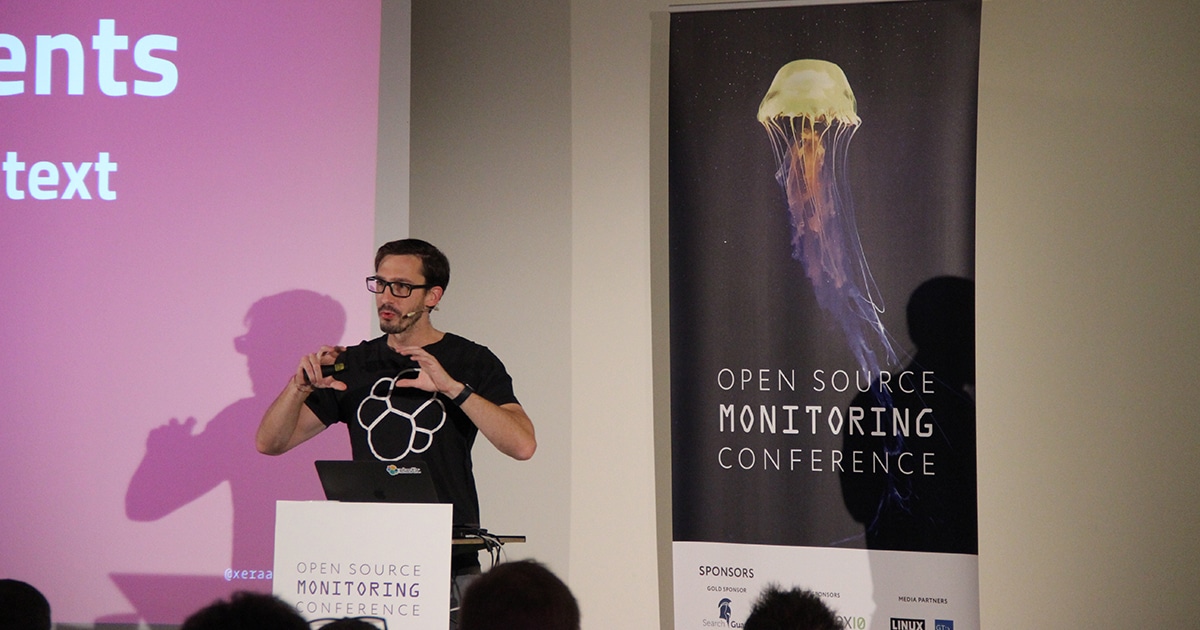





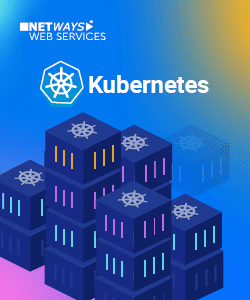
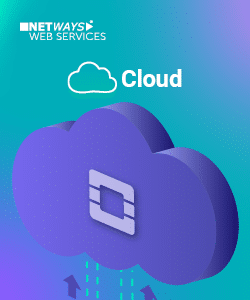
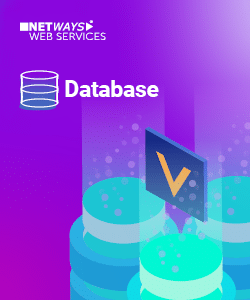
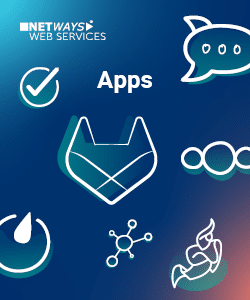
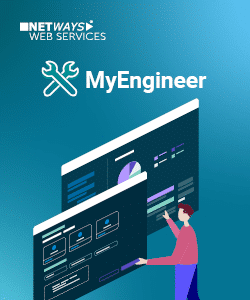
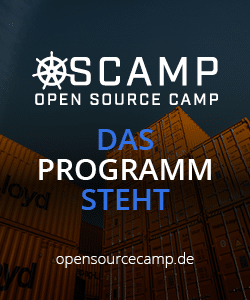
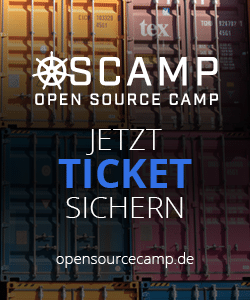
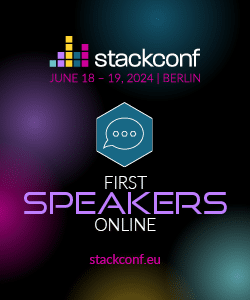


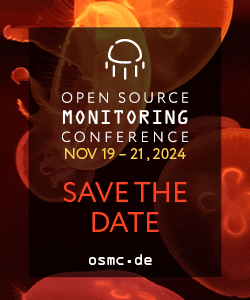

0 Comments